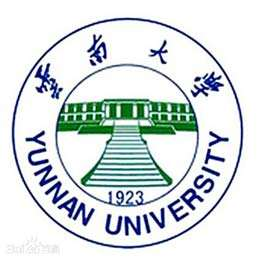In 1946, Yunnan University was listed by Concise Encyclopedia Britannica as one of the 15 world's famous universities in China. In 1996, it was among the first universities to win the membership of Project 211. In 2001, it was listed as one of the higher education institutions to be intensively supported in China's development of its western region. In 2012, it became a participant of the Central-western Chinese Universities Capacity-building Project, and a participant in the Central-western Chinese Universities Comprehensive Capacity Promotion Project. In 2017, Yunnan University has been selected as one of the 42 universities which will participate in the country's construction plan of World-Class Universities. In recent years, Yunnan University has integrated itself into the national strategy by serving the economic and social development of Yunnan. It has committed to taking a foothold in the southwestern frontiers, serving the people of Yunnan, promoting academic strengths, and developing distinct features and extraordinary and frog-leaping development from a higher starting point.
Its innovative strategy to meet those goals is to emphasize talent recruitment in a highly-focused and cooperative joint development context that includes the Talent Cultivation Plan and the Action Plan of Yunnan University to Serve Yunnan Province. The go-global approach will allow the university to reach new academic heights and a stronger competitive position.
Yunnan University has now gathered a galaxy of talents in liberal arts, science, law, technology, economics, agriculture, medicine, business administration, and fine arts, and has developed into a modern university featuring ethnology, biology, resource development and environmental protection, borderland research, and Southeast Asia and South Asia research. According to a recent discipline ranking released by the MOE, its ethnology, ecology and political science programs rank 2nd, 6th and 10th respectively in the country. According to the 2012 Essential Science Indicators, biology and chemistry at Yunnan University were among the top one percent of the world's academic disciplines.
Currently, Yunnan University has 27 schools, thirteen research institutes, a teaching department for general courses, an affiliated hospital and a graduate school, with 16,682 full-time undergraduates and 13,537 full-time graduate students. It has 92 majors in undergraduate programs, 12 state-level featured majors, two state-level professional comprehensive pilot reform programs.In addition to leading facilities and research centers Yunnan University is also home to many award-winning faculty members and outstanding scholars. The 2,956-strong faculty includessix national academicians, and many recipients of national awards and beneficiaries of country-wide programs. Those include10 participants in the National Science Fund for Distinguished Young Scholars and four recipients of the National Famous Teacher Award. The University, covering an area of 300 hectares, is divided into Chenggong Campus and Donglu Campus, with a public floor area of more than 814,000 square meters, asset value of more than 432 million yuan for teaching and scientific research instruments and equipment, and a collection of more than 3,420,000 books in the library. The campus network is the main node of CERNET in Yunnan.
Looking into the future, Yunnan University will stick to its spirit of wisdoms from many, justice for all, highlighting rule of law, establishment by virtue, developing by relying on academic research and talents. It will continue to explore the formation of modern university system, enhance its academic strengths, improve its education quality, strengthen its research capacity and social services, promoting its cultural inheritance and innovation capability. It is now working hard to become a regional first-class university that is best in China, and famous throughout the world.




